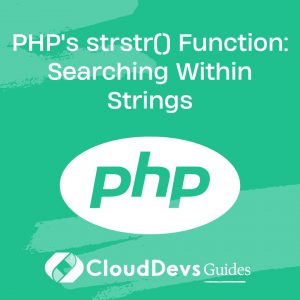How to work with JSON?
Working with JSON (JavaScript Object Notation) in PHP is a common task for web developers, especially when dealing with data exchange between different systems or when building APIs. PHP provides robust built-in functions to encode and decode JSON data efficiently. Here’s how to work with JSON in PHP:
Encoding JSON:
To convert a PHP array or object into a JSON string, you can use the `json_encode()` function. This function takes your PHP data and transforms it into a JSON-formatted string:
```php
$data = array("name" => "John", "age" => 30, "city" => "New York");
$jsonString = json_encode($data);
```
You can then send this JSON string to clients, store it in a file, or use it in your application as needed.
Decoding JSON:
To parse and work with JSON data received from an external source, you can use the `json_decode()` function. This function takes a JSON string and converts it into a PHP array or object:
```php
$jsonString = '{"name": "John", "age": 30, "city": "New York"}';
$data = json_decode($jsonString);
```
Now, the `$data` variable holds the JSON data as a PHP array or object, and you can access its elements just like any other PHP array or object.
Handling Errors:
It’s essential to handle potential errors when encoding or decoding JSON data. Both `json_encode()` and `json_decode()` return `false` if there’s an issue. You can use `json_last_error()` and `json_last_error_msg()` to check for errors and get error messages.
```php
$jsonString = '{"name": "John", "age": 30, "city": "New York"';
$data = json_decode($jsonString);
if ($data === null && json_last_error() !== JSON_ERROR_NONE) {
echo "JSON decoding failed: " . json_last_error_msg();
}
```
Working with JSON in PHP is straightforward, and it allows you to exchange data in a lightweight, human-readable format. Whether you’re building RESTful APIs or handling data from external sources, PHP’s JSON functions make it easy to work with JSON data effectively.







